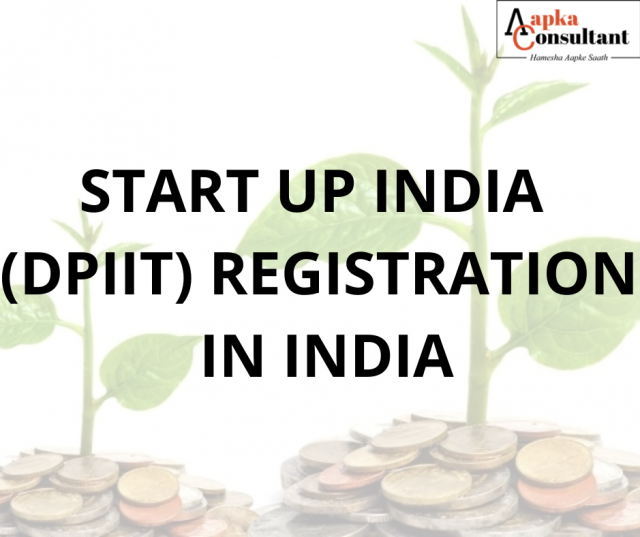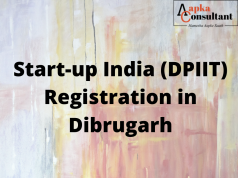What is a Startup?
A Startup is a novel and unique business model founded by one or more entrepreneurs in order to develop a unique product or service and bring it to market. Either the product or service is one of its kinds or an already established business model is presented in an innovative way.
What is Startup India?
Startup India is an initiative of the Government of India.
The campaign was first announced by Indian Prime Minister, Narendra Modi during his 15 August 2015 address from the Red Fort, in New Delhi. The action plan of this initiative, is based on the following three pillars:
- Simplification and Handholding.
- Funding Support and Incentives.
- Industry-Academia Partnership and Incubation.
An additional area of focus relating to this initiative, is to discard restrictive States Government policies within this domain, such as License Raj, Land Permissions, Foreign Investment Proposals, and Environmental Clearances. It was organized by The Department for promotion of industry and internal trade (DPI&IT).
A startup defined as an entity that is headquartered in India, which was opened less than 10 years ago, and has an annual turnover less than ₹100 crore (US$14 million). Under this initiative, the government has already launched the I-MADE program, to help Indian entrepreneurs build 10 lakh (1 million) mobile app start-ups, and the MUDRA Bank‘s scheme (Pradhan Mantri Mudra Yojana), an initiative which aims to provide micro-finance, low-interest rate loans to entrepreneurs from low socioeconomic backgrounds. Initial capital of ₹20,000 crore (equivalent to ₹210 billion or US$3.0 billion in 2018) has been allocated for this scheme.
Key Ingredients of a Successful Startup
- Strong Prototype with a potential Commercial Exploitation.
- Adequate Financial Backup or funding to turn the idea into reality.
- Fair and Deterministic Value to attract the probable Investors.
Funding For the Startups
- Traditional Funding- Traditional funding sources include small business loans from banks or credit unions, government-sponsored Small Business Administration loans from local banks, and grants made by nonprofit organizations and state governments.
- Incubators- These organizations are engaged in the business of nurturing early-stage companies through the developmental phases until the companies have sufficient financial, human resources, and physical resources to function on their own.
- Venture Capital Funding- These organizations are often called as Angel Investors who mostly funds the entire startup prototype through private equity by holding a specific stake in the newly established company.
How Startups are Different with Traditional Business Initiatives
- The basic difference between a startup and a traditional business is the scale of operation also a startup a startup once got funding and clears the commercial viability has a capacity to grow very fast while the small business initiative neither have the capacity to reach mass market nor a rapid promising growth rate.
- The second key difference is the type of Funding while a traditional business is majorly dependent on the bank loans and government grants and that too after successful operation of few years in installments a startup once got the green signal is backed by huge one time funding which proved as a catalyst to scale the operations at the very initial level.
- Planning from Start to End/Exit- Suppose the idea does not work for the startup or it fails to generate requisite funding then there is a defined and time bound exit mechanism backed by the new Insolvency and Bankruptcy Code, 2016 to shut the company where as the traditional business does not have a exit strategy, once it is started it operates with a view of perpetuity.
Challenges faced by the Indian Startups
- Cut Throat Competition
- Huge expectations
- Diversity in the Technological reach
- Funding
- Robust Human Resource
- Multifarious Regulatory Environment
- Winning the trust of Customers at large.
Startup Eligibility Criteria
- Company Age- Period of existence and operations should not be exceeding 10 years from the Date of Incorporation.
- Company Type- Incorporated as a Private Limited Company, a Registered Partnership Firm or a Limited Liability Partnership
- Annual Turnover- Should have an annual turnover not exceeding Rs. 100 crore for any of the financial years since its Incorporation
- New Entity- Entity should not have been formed by splitting up or reconstructing an already existing business
- Innovative and Commercially Scalable- Should work towards development or improvement of a product, process or service and/or have scalable business model with high potential for creation of wealth & employment.
Advantages of Startup India Registration
- Self Certification: The Startups may self-certify compliance in respect of six Labour Laws.
- Easy Winding Up of Company: Within 90 days under insolvency & Bankruptcy code 2016
- Start-up Patent Application and IPR Protection: Fast Track and and upto 80% rebate in filing patents
- Easier Public Procurement Norms: Exemption on EMD and minimum requirements!
- Tax Exemption (Only to few startups): The Inter-Ministerial Board validates Startups for granting tax related benefits under Section 80-IAC and Section 56 of Income Tax Act.
Startup India (DPIIT) Registration Process
Step 1. Business Incorporation– First step is to register your business as private limited company or a limited liability partnership or a Partnership firm.
Step 2. Register with Startup India- Then you need to register your firm or company as a startup in the Startup India scheme of the government.
Step 3. Documents to be Uploaded- You need a letter of recommendation along with the Registration Form. You can get the same from any of the following-
- A recommendation letter from an Incubator known in a post-graduate college in India, in a format approved by the DIPP. This is regarding the innovative nature of the business; OR
- A recommendation letter from an incubator that the Government of India funds as part of any specified scheme to promote innovation; OR
- A letter from any of the Incubators, recognized by the Government of India, in DIPP format.
- A letter of funding not less than 20% in equity, by an Incubation Fund, Private Equity Fund, Angel Fund, Accelerator, Private Equity Fund, registered with SEBI that endorses the innovative nature of business; OR
- A recommendation later by the Central or any State Government of India; OR
- A patent filed and published in the Journal of Indian Patent office in areas affiliated with the nature of the business being promoted.
Registration/Incorporation Certificate also need to be uploaded also you need to explain in brief about your business.
Step 4. Need to mention whether you want to avail tax Exemption or not- In India, startups do not have to pay income tax for the first three years but to avail such benefits, the company must be certified by the Inter-Ministerial Board (IMB). This is where companies registered with DIPP get relaxation as the registration is enough to get the benefits.
Step 5. Self Certifications of the eligibility criteria-
- You are a Private limited company, an LLP or a partnership firm.
- Your business must be incorporated or registered in India, not before 5 years.
- Your company’s turnover must not be more than Rs 100 crore.
- The company has to keep innovating something new or making the existing system better in its own way.
- Your business must be a fresh idea and not a splitting up or reconstruction of an existing business.
Step 6. Get your Recognition Number immediately- On applying you will immediately get a Recognition Number. The Certificate of registration will be given to you once the authority checks and approves all the uploaded documents.
While uploading the documents one need to be very careful as if there is any discrepancy regarding the uploaded documents then you shall be liable to a fine of 50% of your paid-up capital of the startup with a minimum fine of Rs. 25,000.
Step 7. Patents, Trademark and Designs Registration
If you need to register your invention and want to get it patented or you need to protect your brand/logo through trademark registration then you can avail the government grant provided under the scheme where you will be provided 80% reduction in the government fee.
To Register your startup under the DPIIT scheme kindly visit https://www.aapkaconsultant.com/start-up-india-dpiit-registration
OUR SERVICES
Company Registration I Trademark I Copyright I Patent I GST I MSME
ISO Certification I Website/App Policy I Legal DocumentationAnnual Compliance












